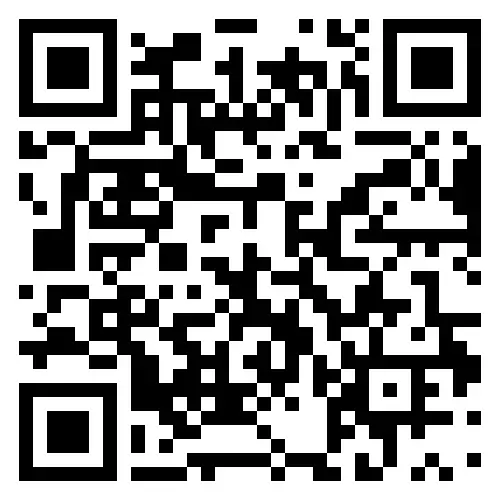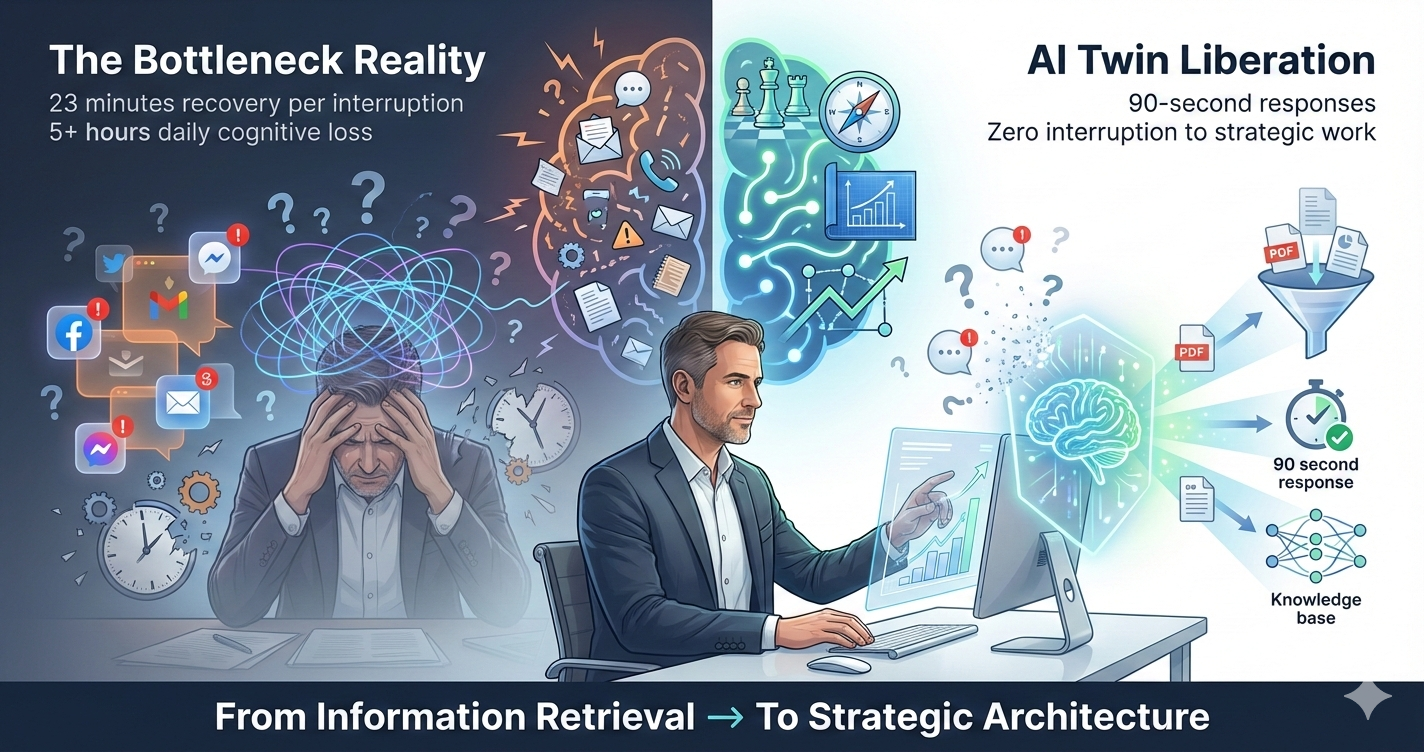Stop Hiding Your Business Behind Safe, Boring Marketing

Share this post
The Naked Truth About Your Marketing
It's Super Bowl Sunday, 2022. You're watching $7 million commercials featuring celebrities, explosions, and enough production value to fund a small movie. Then suddenly, your screen goes black.
A simple QR code appears. It bounces around like an old DVD screensaver. That's it. No celebrities. No jingle. No voiceover.
For sixty seconds, 100 million people watched a bouncing square while elaborate million-dollar productions played during other commercial breaks. The result? Coinbase's app crashed from overwhelming traffic. Their minimalist QR code became the most talked-about Super Bowl ad of the year.
While their competitors were busy being spectacular, Coinbase had the audacity to be different.
Now imagine a CEO sitting in a sterile conference room, staring at marketing copy that could have been written by a committee of accountants: "We provide innovative solutions to help businesses optimize their operational efficiency."
Yawn.
Here's the uncomfortable truth: Your marketing isn't failing because you don't know the tactics. It's failing because you're terrified to let anyone see who you really are.
You've wrapped your brand in so many layers of safe, generic messaging that even your own mother couldn't pick you out of a lineup of your competitors. While you've been busy being appropriate, your ideal customers have been scrolling right past you, looking for someone brave enough to speak their language.
Why Your Business Wears a Corporate Costume

Miss January, by Marlene Dumas. The painting sold for $13.6 million at Christie's New York on May 14, 2025, setting a new record for the most expensive artwork by a living female artist sold at auction
Look at this figure. Confident. Unashamed. Completely authentic. This is what fearless self-expression looks like—no corporate costume, no carefully curated 'professional' facade, just pure, unapologetic presence.
Now imagine your marketing with this same energy. Not the literal nakedness, but the emotional nakedness—the courage to stand exactly as you are, without hiding behind industry jargon or committee-approved messaging.
The sanitization epidemic happens for four predictable reasons:
Fear of exclusion: You convince yourself that bland appeals to everyone. Spoiler: it appeals to no one.
Committee castration: Every approval layer strips away personality. By the time your message survives legal, management, and the intern who "just wants to be safe," you're left with corporate zombie-speak.
Competitor copycatting: You study what everyone else says and say the exact same thing. Congratulations, you've just disappeared into the beige background.
Paralysis by paranoia: You're so terrified someone might misunderstand, you say nothing worth understanding.
The invisible cost? Every day you sound like everyone else is another day your ideal customers scroll past you.
Ask yourself: If your marketing copy was a person at a party, would anyone remember meeting them?
The Courage to Stand Naked
Authentic marketing isn't about dropping F-bombs or posting controversial hot takes. That's desperation wearing a fake mustache.
Real authenticity is having the courage to sound like yourself instead of a corporate committee. It's admitting limitations instead of pretending you're perfect. It's talking about problems the way customers actually experience them.
The difference between bold and stupid:
- Bold: "This service isn't for everyone—here's who shouldn't hire us."
- Stupid: "Everyone who doesn't buy from us is making a huge mistake."
Why vulnerability beats perfection: When you admit limitations, customers trust your strengths. Perfect companies feel untouchable. Vulnerable companies feel relatable. People buy from people they can relate to.
Brands that dared to show their real selves: Patagonia tells customers not to buy their jackets unless they really need them. Buffer publishes their revenue numbers and salary formulas. Your local mechanic who says "I can't fix that, but here's who can" gets more referrals than the one who claims to fix everything.
None of these examples are shocking for shock's sake. They're simply honest about who they are and how they operate.
Your Competition is Counting on Your Cowardice
Right now, while you're editing the personality out of your marketing copy for the fifth time, your smartest competitor is celebrating. They know that as long as you stay scared, they get to own the space you're too afraid to claim.
The overcrowded "safe zone": Picture thousands of businesses packed into the same lane, saying the same predictable things: "We provide quality solutions." "Customer satisfaction is our priority." "We're committed to excellence."
Everyone's being so careful not to crash that nobody's actually getting anywhere.
Meanwhile, there's a wide-open lane called authenticity. Most businesses won't take it because it requires having opinions and acknowledging limitations.
Why being slightly controversial beats being completely forgettable: Controversial doesn't mean offensive. It means having a point of view. Examples:
- "Most financial advisors overcomplicate things to justify their fees. We don't."
- "Industry certifications don't guarantee quality work. Our track record does."
- "We don't take clients who aren't ready to do the work required for results."
The economic reality: Memorable businesses get 80% of inquiries in their niche because they're the only name prospects remember. Forgettable businesses compete with 47 other "similar" companies for the remaining 20%, where price becomes the only differentiator.
The Anatomy of Fearless Marketing
Finding your real voice: How do you talk about your work when grabbing coffee with a friend? What gets you excited? What frustrates you about your industry? That unfiltered conversation contains your real voice.
The scientist's approach: Forget frameworks. Start with theories about your specific market. Test one authentic element at a time. Try a more honest subject line. Write one blog post in your real voice. Share one genuine opinion.
Reading the room without losing your nerve:
- The ideal customer lens: Would your ideal customer appreciate this honesty? Their opinion is the only one that matters.
- Start granular: Test one honest element at a time rather than dramatic overhauls.
- Warning signs: Polite indifference (lots of likes, no meaningful comments) means you're still hiding.
- Genuine engagement signals: Comments showing real thought, shares with personal commentary, referrals that mention your specific approach.
When Playing It Safe Costs You Everything
Real stories of waiting too long: Domino's spent years avoiding the truth—their pizza tasted terrible. Their "Oh Yes We Did" campaign admitted it and promised to fix it. Sales jumped 14.3% the following quarter. Same company. Different courage to tell the truth.
Nokia dominated mobile phones, then spent years being too polite to admit the smartphone revolution was real. While Apple boldly declared their device would change everything, Nokia remained safely focused on "reliability." They missed the entire transformation of their industry.
The compound effect: Every month you stay safe is another month bold competitors build stronger market position. Year 1: Authentic companies get remembered. Year 3: They become the obvious choice. Year 5: They own their market position while safe companies still explain why they're worth hiring.
The brutal truth: Every month you spend perfecting safe messaging is a month competitors spend building unshakeable market position. Your choice isn't between safe and risky—it's between invisible and memorable.
Your Business Deserves to Be Seen
The authenticity audit: Pull up your homepage. Read the first three sentences out loud. Would you say this at a coffee shop? Does this sound like any other business in your industry?
The simple test: Replace your company name with your biggest competitor's name. Does the message still work perfectly? If yes, you're hiding.
The courage question: Think about the last conversation where you got genuinely excited about your work. What did you say? That energy, that honesty—where is it in your marketing?
The ultimate question: What would you say about your business if you weren't afraid of what people might think?
That's your real marketing message. The customers worth having are waiting for someone with the courage to say it.
---
Ready to stop hiding? Let's talk.




